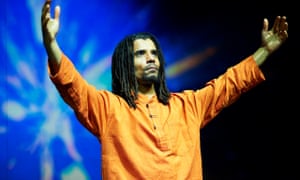Why Harry and Meghan’s ‘Megxit’ is a crossroads for the UK on racePosted in Articles, Media Archive, United Kingdom on 2020-01-22 00:58Z by Steven |
Why Harry and Meghan’s ‘Megxit’ is a crossroads for the UK on race
PBS NewsHour
2020-01-20
Courtney Vinopal, Digital Reporter
When Prince Harry and Meghan, the duke and duchess of Sussex, first announced that they intended to “step back” from their duties as “senior UK royals,” palace officials were reportedly taken aback by the decision.
But it came as no surprise to close watchers of the young royals — particularly among the United Kingdom’s communities of color — that the couple made the historic decision to renounce their “Royal Highness” titles and spend most of their time in North America.
“Minority communities expected this to some degree,” said Nels Abbey, a London-based media executive and author of the novel “Think Like a White Man.” With “the level of hostility and racism that Meghan has been on the receiving end of, it’s no surprise that she’s chosen to leave,” he added…
Read the entire article here.






